Conservation – a glossary #1
Conservation sounds like it should be a good thing, a thing with which everyone agrees. We all want to conserve the natural world, don’t we? The problem is that people have different values and we use those values to guide our decisions and our actions.
Much of the ethical background to conservation is based in anthropocentrism, inherited from the Judaeo-Christian tradition. This view of the world holds that the Earth and all life within it were created for humans by an all-powerful God for humans to use. All animals and plants are therefore provided for us, to do with what we wish, unless, of course, they are specifically named as ‘unclean‘.
Then there’s the biocentric perspective, in which all living things have equal worth. Nature isn’t there to be used or consumed by humans, but we are merely one species among many. Having reached a level of self-aware sentience, it’s a human responsibility to safeguard and conserve the variety of life on Earth. Humans are merely one member of the community of life.
Then there’s the ecocentric perspective, where it’s the complexity of relationships and mutual interdependence of all life which is key. This view promotes maintaining natural ecological processes to maintain the complexity of life on Earth. It follows that all social, economic and political decisions should consider their impact on the complexity of life on Earth.
Anthropocentrism, with humans as the centre of the universe and the pinnacle of all Creation has had such a profound effect upon our society that it’s hard for many people to realise that other moral views exist. It has led to rapidly increasing extinction of species, human overpopulation and our current ecological crisis. It also led to one of my favourite historical figures, Giordano Bruno, being gagged, hung upside down and burned at the stake by Pope Clement VIII.
Conservation in the UK frustrates me. What I want is for large areas of wilderness which have been restored to their previous complexity. We have interfered with natural processes and upset the balance inherent in ages-old evolved relationships. We killed the wolves and now complain about having too many deer, so we promote killing deer too in a cascade of death down the food chain. The John Muir Trust? Wants to shoot deer. Butterfly Conservation Scotland? Wants to shoot deer. Froglife? Wants to shoot deer. RSPB Scotland? Wants to shoot deer. Woodland Trust Scotland? You know what they want to do. ‘Managing deer for climate, communities and conservation’. In my view, every conservation organisation should be promoting the idea of reintroducing wolves to the UK. Otherwise they are gutless collaborators with the destruction of life on Earth. How can we complain about the killing of Tigers or Elephants or Orang-Utans when we’ve already killed all their equivalents in the UK and have no intention of bringing them back. Our colonial hypocrisy is breathtaking.
On a smaller scale, local branches of national conservation organisations are busy recruiting volunteers to work on their land and on the land of large landowners. Their purpose? To ‘control’ scrub, remove species and cut back woodland growth. It’s an incredibly primitive form of wildlife gardening.
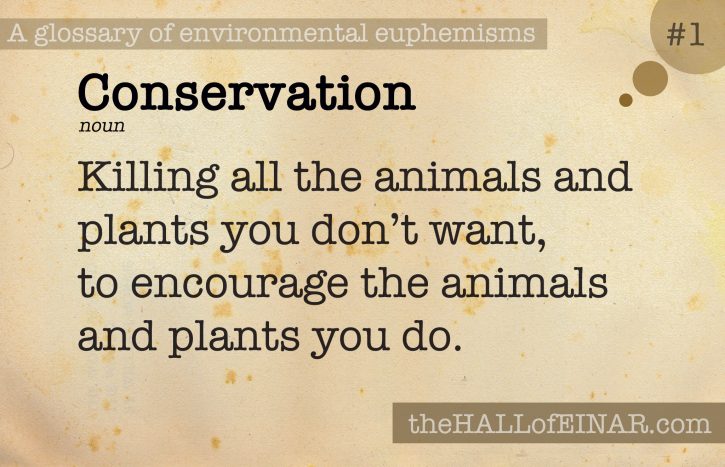
All nature needs is land and to be left alone.
If you’d prefer not to know this, here’s a cute Puffin, preening:
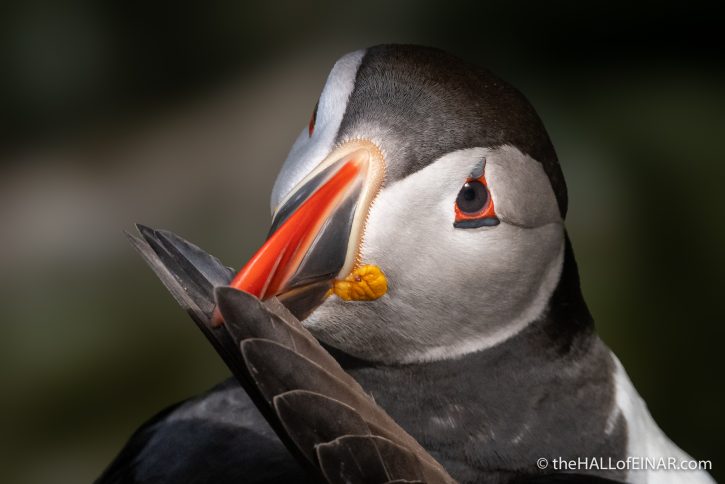
A Glossary of Environmental Euphemisms
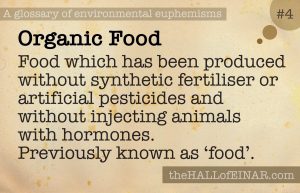 Organic food – a glossary #4 "Is organic food any better for you?", people ask, as if that's the only worthwhile question to ask. A follow… read more
Organic food – a glossary #4 "Is organic food any better for you?", people ask, as if that's the only worthwhile question to ask. A follow… read more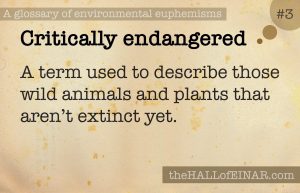 Critically endangered – a glossary #3 Life on Earth is in dire trouble. The Living Planet Report 2020 reports: "The global Living Planet Index continues to… read more
Critically endangered – a glossary #3 Life on Earth is in dire trouble. The Living Planet Report 2020 reports: "The global Living Planet Index continues to… read more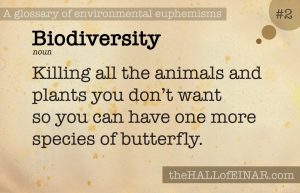 Biodiversity – a glossary #2 Biodiversity is a pretentious term used by people who want to sound as if they understand something that you don't.… read more
Biodiversity – a glossary #2 Biodiversity is a pretentious term used by people who want to sound as if they understand something that you don't.… read more